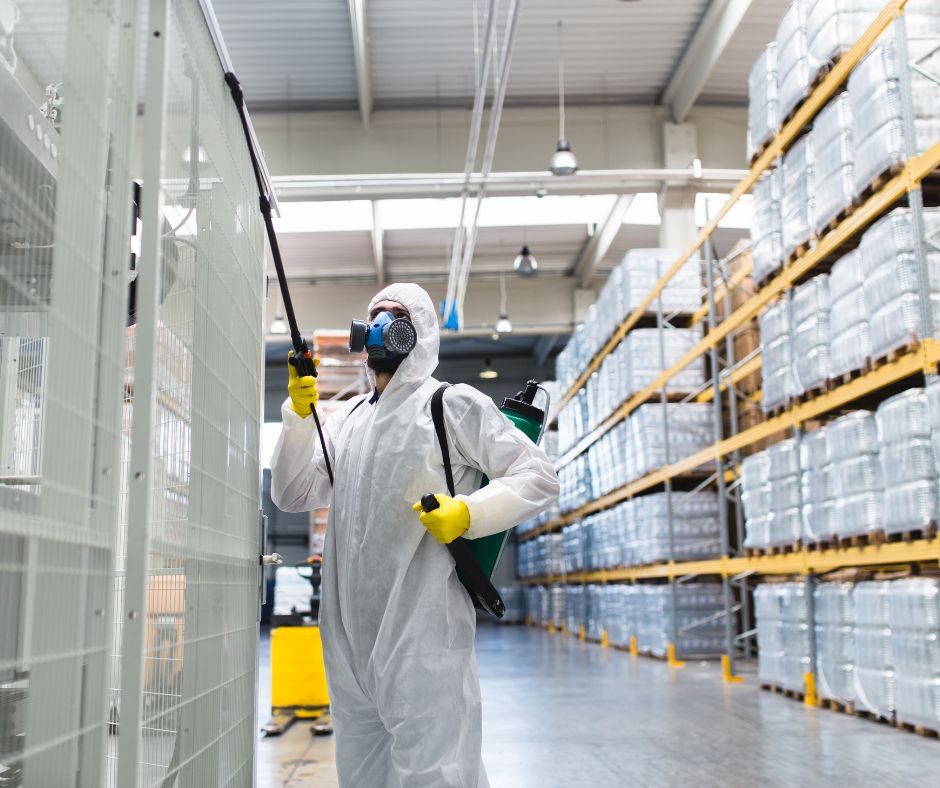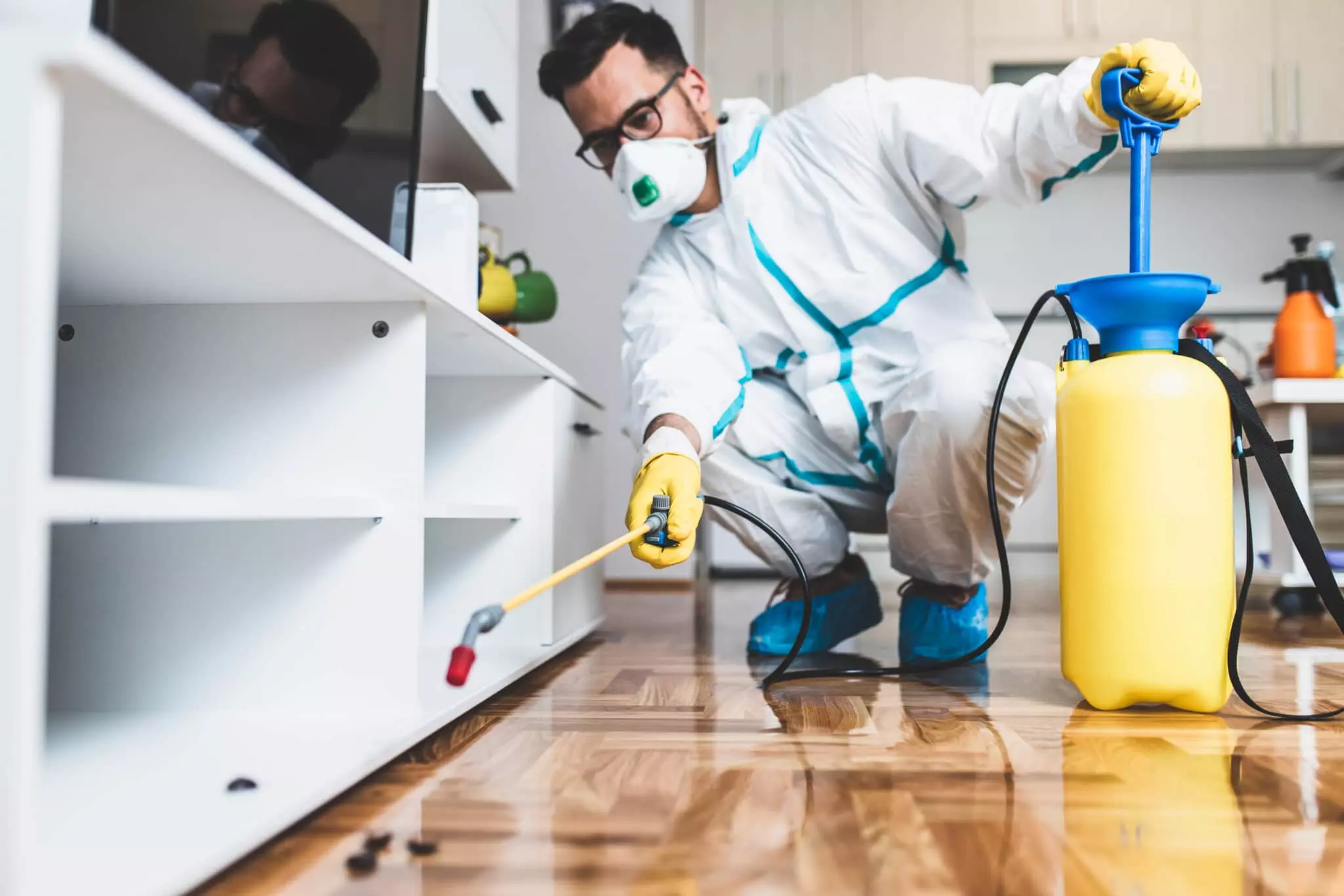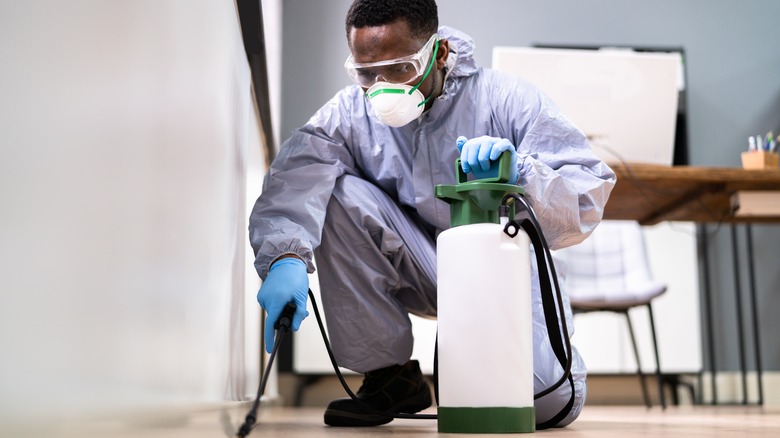Find the Top Ant Exterminator Near Me for Quick and Reliable Solutions
Discover the Most Current Advances in Insect Control and Exactly How to Implement Reliable Therapy Solutions
In recent years, the area of insect control has seen substantial improvements, driven by the need for sustainable and efficient treatment remedies. Ingenious methods such as Integrated Pest Monitoring (IPM) combine eco-friendly methods with advanced modern technology, boosting both efficacy and ecological responsibility.
Eco-Friendly Insect Control Options
In current years, the need for eco-friendly insect control choices has actually surged as house owners and businesses alike seek sustainable options to typical chemical therapies. This change is driven by expanding environmental understanding and a wish to lessen the health and wellness threats related to synthetic pesticides.

Environmentally friendly insect control methods encompass a range of approaches that focus on using all-natural materials and techniques. Integrated Parasite Monitoring (IPM) is one such technique, combining organic, cultural, and mechanical methods to take care of insect populations while lowering reliance on chemicals (Wildlife removal services). This holistic method stresses prevention with habitat manipulation and the introduction of natural predators, therefore promoting a balanced environment
One more popular alternative is making use of agricultural pesticides obtained from plants, which often tend to be less harmful to non-target organisms. Products like neem oil and diatomaceous planet have obtained traction for their performance in managing parasites while presenting marginal risks to human health and wellness and the setting.
Furthermore, exemption techniques, such as securing entrance factors and maintaining tidiness, play an important duty in green insect management. By embracing these lasting techniques, individuals and services can successfully take care of pests while promoting a much healthier world for future generations.
Smart Technology in Insect Administration
Innovation is reshaping the landscape of insect management, with clever innovation becoming a crucial pressure in boosting effectiveness and performance - Wildlife removal services. The assimilation of Internet of Points (IoT) tools, expert system (AI), and data analytics is transforming exactly how bug control experts approach invasions
Smart catches furnished with sensors can find parasite activity in real-time, sending prompt alerts to operators. This permits timely actions, decreasing damages and lowering the requirement for considerable therapies. In addition, AI formulas evaluate historical data to predict parasite behavior, enabling aggressive treatments based on environmental problems and problem patterns.
Drones and computerized automobiles are likewise playing a significant role in parasite administration, giving airborne analyses of big areas, identifying hotspots, and also dispersing targeted treatments. These technologies not just enhance operations but additionally improve safety by restricting human exposure to possibly dangerous chemicals.
Moreover, mobile applications empower customers to keep track of parasite activity and access specialist recommendations, fostering a joint strategy to pest monitoring. In general, the fostering of wise modern technology is setting a new criterion in insect control, stressing data-driven decisions and lasting practices that eventually profit both experts and homeowners alike.
Integrated Bug Monitoring Methods
Integrated Parasite Management (IPM) uses an alternative approach to pest control, combining numerous methods to successfully take care of bug populations while lessening threats to human health and the atmosphere. IPM rotates around recognizing the pest life cycle, their natural adversaries, and the ecosystem in which they flourish.
Among the essential parts of IPM is checking pest populaces through regular examinations and information collection. This allows for the recognition of pest thresholds, establishing when wildlife pest control intervention is necessary. Cultural methods, such as crop rotation, habitat, and sanitation adjustment, are essential in decreasing insect prevalence and promoting plant health.
Mechanical controls, including traps and barriers, are likewise crucial in IPM. These techniques can literally eliminate or discourage insects without using chemicals. When essential, the sensible application of chemical controls is utilized, concentrating on targeted treatments that minimize ecological influence.
Education and learning and partnership among stakeholders, including farmers, pest control professionals, and the community, are essential for the successful execution of IPM approaches. By focusing on lasting practices, IPM not just addresses pest concerns however also fosters a much healthier environment.
Biological Control Techniques
Numerous organic control techniques are increasingly acknowledged for their effectiveness in taking care of pest populations while advertising ecological balance. These approaches harness natural predators, bloodsuckers, and pathogens to reduce pest numbers without relying upon synthetic chemicals. The intro of ladybugs can effectively manage aphid populations, while nematodes target soil-dwelling bug larvae.
Additionally, making use of microbial pesticides, such as Bacillus thuringiensis (Bt), gives an eco-friendly option for taking care of caterpillar bugs. These items particularly target pest varieties, reducing injury to helpful insects and pollinators. Conservation biological control stresses boosting habitats for natural pest and rodent control opponents, such as birds and advantageous bugs, therefore encouraging their existence in farming systems.
Study remains to reveal ingenious techniques within this area, such as making use of pheromones to disrupt pest mating patterns or the growth of biocontrol representatives via genetic engineering. Implementing these techniques can bring about lasting pest management methods that alleviate the reliance on chemical treatments, inevitably cultivating much healthier communities. As understanding of these methods expands, they are ending up being indispensable elements of integrated insect management (IPM) methods, using an equilibrium between efficient insect control and environmental stewardship.
DIY Pest Control Solutions
As property owners seek effective ways to take on bug concerns, do it yourself pest control remedies have actually obtained appeal for their access and cost-effectiveness. These approaches encourage individuals to deal with invasions using conveniently offered materials and techniques, frequently without the need for professional treatment.

Furthermore, maintaining proper sanitation and normal evaluations can prevent insect entry and nesting (Wildlife removal services). Simple techniques, such as securing splits, removing food sources, and decluttering, can substantially lessen parasite populaces. Traps, both homemade and commercially readily available, can additionally use effective solutions for surveillance and regulating certain insects like bugs or rodents

Verdict
The integration of green insect control alternatives, wise modern technology, and ingenious monitoring strategies provides a comprehensive technique to reliable insect monitoring. By embracing Integrated Bug Monitoring (IPM) and utilizing biological control approaches, alongside DIY remedies, sustainable and responsible insect control can be attained.
Eco-friendly insect control techniques incorporate a range of methods that focus on the use of natural compounds and methods. Integrated Parasite Management (IPM) is one such method, incorporating organic, social, and mechanical strategies to handle bug populations while decreasing reliance on chemicals. insect removal services As recognition of these techniques expands, they are becoming important parts of incorporated parasite management (IPM) strategies, providing an equilibrium in between effective pest control and environmental stewardship.
The integration of environmentally friendly insect control choices, clever technology, and ingenious administration techniques provides an extensive method to efficient bug management. By embracing Integrated Pest Management (IPM) and making use of organic control techniques, along with DIY services, sustainable and responsible bug control can be accomplished.